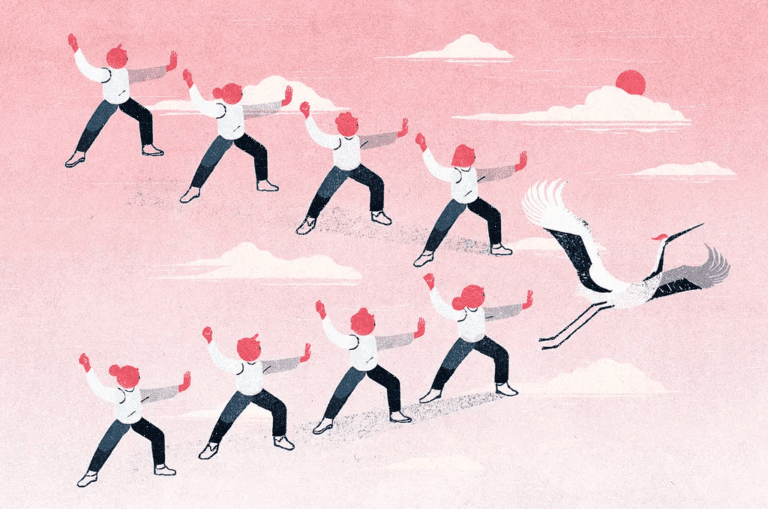
Tai Chi has been practised for centuries, and, is known to improve overall well-being in individuals who practice it regularly.
We have discussed how Tai Chi, as a traditional Chinese practice. uses deep breathing, meditation, and slow, fluid movements to improve our health in many ways.
Here’s a more detailed explanation of how Tai Chi can improve overall well-being:
Physical health benefits: Tai Chi is a low-impact exercise that helps to improve flexibility, strength, and balance. By practicing Tai Chi regularly, you can reduce the risk of falls, improve your posture, and reduce joint pain. Tai Chi has also been found to improve heart health, lower blood pressure, and reduce the risk of chronic diseases such as diabetes and osteoporosis.
Mental health benefits: Tai Chi is a mindful practice that promotes relaxation, reduces stress and anxiety, and improves overall mental well-being. It can also improve sleep quality and cognitive function. Research has shown that regular Tai Chi practice can reduce symptoms of depression and anxiety, as well as improve mood and self-esteem.
Social benefits: Tai Chi is often practiced in groups, which can provide social support and a sense of community. This can lead to improved social well-being and a greater sense of connection to others.
Self-awareness: Tai Chi involves paying attention to your body and your breath, which can help increase your awareness of your own physical and emotional state. This increased self-awareness can lead to better decision-making, improved communication, and greater self-confidence.
Spirituality: Tai Chi has roots in traditional Chinese philosophy and can be practiced as a form of spiritual cultivation. By focusing on the present moment and connecting with your inner self, you can achieve a sense of inner peace and harmony.
In addition to being low-impact, Tai Chi is an excellent form of exercise for improving balance and coordination. The slow, flowing movements help to improve proprioception, which is the body’s ability to sense where it is within its immediate surroundings. The concept required some research to discover the full meaning. It has so many layers of understanding and deserves a separate article on its own, so watch this space.
This is particularly important for older adults where the risk of falls and other balance-related injuries is highr. Regular practice of Tai Chi can help improve balance and reduce such incidences, thus leading to improved overall well-being and a higher quality of life. Sensing the distance between objects in the space around you is essential to your balance.
In conclusion, Tai Chi is a holistic practice that can improve overall well-being in many ways. By improving physical health, mental health, social connections, self-awareness, and spirituality, Tai Chi can help you live a healthier, happier life. Whether you are young or old, healthy or dealing with health challenges, Tai Chi can be a valuable addition to your wellness routine.






